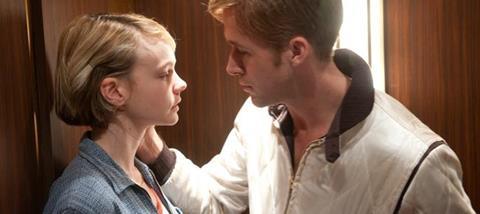
They say you become what you behold. I think that’s true. Jesus only did what he saw his father doing, meaning that he modelled the person he had closest contact with. In our culture, our main interface is often with screens and the stories being played out amid their plasmic glow.
When we watch enough films, we start to appropriate their form; we absorb their stories, their accompanying structures and motifs, and we let them mould us.
Whatever worldview we hold, there is a storyline that we’re striving to live out. This makes sense, because in the beginning, long ago in a galaxy not very far away, was the Word.
The story that Word continues to tell throughout our world was wired into the universe right from the start, and every story you see projected onto a screen is an attempt, wittingly or unwittingly, to plug into that cosmic grand narrative.
But are we learning too much from films? Are the plotlines we’re following realistic? Here are four ways that films may have stopped us being reliable narrators to our own lives.
1. Your life does not follow a three-act structure
You don’t know how much screen time you’re going to get in this life. There’s a temptation to assume that we’re building up to a satisfying climax; that two thirds of the way through our life, we’ll learn the lessons we need in order to overcome the enemies, demons and difficulties in our story – and secure that happy ending. We bank on walking off into the sunset. But that’s not often real life.
It rains on the righteous and unrighteous, and you don’t know when production is going to shut down on your life – you don’t get to ‘call it’. But if we listen to the director, we can at least own our scenes. The problem is that…
2. You are not the hero in the story
Whatever your religious position, you know deep down that life is not a story about you. The denouement to the whole show might be, of course, that there’s no real plot. The whole grand narrative might be an anti-climax where everything just dissolves into nothingness regardless of how much we protest that seeming injustice. We won’t be immortalised in freeze-frame like Butch and Sundance; the screen will just fade to black. Or it may be like Donnie Darko, where we think: “What the heck was that all about?”
The Christian story is much more hopeful about what happens when the credits roll, but it comes at a price: you don’t get to be the star. The heir to all things will get the standing ovation, but we are invited to be part of a huge ensemble cast spanning generations. We’re told that we can be co-heirs with Christ, so although you can’t be the star, you might still win the award for Best Supporting Actor
3. Life is not about finding ‘The One’
The driving force for many films (primarily, but not solely, romcoms) is the pursuit of happiness for the main characters. This is usually embodied by the McGuffin of sexual gratification. The lead gets the girl, or boy, and all is well. Phrases like “There’s someone out there for everybody” wedge themselves into our everyday language and become almost proverbial, along with ridiculous pseudo-biblical phrases like “All things work together for good”.
The problem is that there isn’t someone out there for everyone. The One is not a biblical concept. Films like this, which are usually written by Richard Curtis, place the success of the character’s story arc on whether or not they can secure the perfect sexual partner. But the Bible has a far less superficial view of your identity.
Some of the most amazing and beautiful people I know are single. Some of the most selfish, ungrateful people I know are married. Marriage is not a Godly reward for chasing after the right thing.
God’s plan for you is not finding a partner. It may be true that it is not good for man/woman to be alone, but there’s so much community available independent of that relationship. Jesus (who is Love, Actually) wants us to make disciples more than he wants us to make babies. Fullness of joy is in his presence, not in the epilogue of Bridget Jones’ Diary.
4. Your origin story is supernatural not superheroic
Whenever I watch anything from the DC or Marvel, I’m perennially annoyed that my origin story was being raised in a really happy and comfortable environment on the outskirts of Stoke-on-Trent. I hate that I’m not a superhero, capable of saving the world one soul at a time.
But every Christian has an origin to how we got written into that great story. You have a testimony, a powerful story. (According to the letter for the Hebrews, the power of your testimony, along with the blood of Jesus, is how you overcome the evil one.)
You may not have been bitten by a radioactive spider or, less impressively, been really frightened by some bats, but your life is a trailer for the Greatest Showman – the guy who created everything from nothing without breaking sweat.
How you live will help the people in your life decide whether they want to go and see the main feature. I’m going to suggest one similarity that your life may bear to a box office smash: there is a happy ending.
As Gareth Higgins says in his marvellous book, How Movies Helped Save my Soul: “There is only one meta-narrative: the story of God’s redemption of the earth and the race of creatures he made ‘a little lower than the angels.’”
If No Country for Old Men is a bleak satire on Western tropes, Drive is a redeemed retelling of that ideal. Ryan Gosling’s driver spends the third act looking to lay down his life for someone he loves – someone who has rejected him, who doesn’t even know his name.
Colossians 2:15 says this: “Having disarmed the powers and authorities, he made a public spectacle of them, triumphing over them by the cross.” The final showdown of Drive is indeed a public spectacle where the major antagonistic power is left dead in a carpark for all to see.
The closing moments of the film show a seemingly lifeless driver suddenly revived (or resurrected) drive off, bleeding profusely, but knowing that his actions have given life to the people he loves. By his wounds, they are healed.
Films resonate with us because they seek to convey truth – and all truth is God’s truth. There’s a story that was scripted from the beginning of time which has been holding open auditions for about 2000 years. The good news is that everyone who goes for the part get’s it.
Andy Kind is a comedian, author and preacher




























